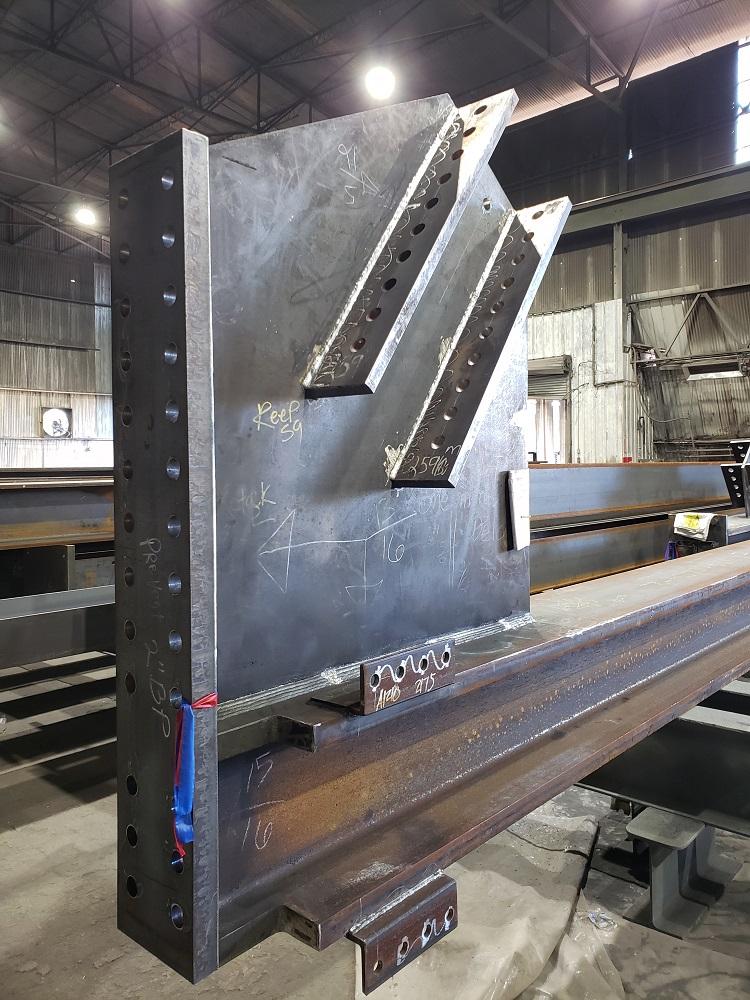Reputable Steel Fixing Providers: Guaranteeing Architectural Integrity
Reputable Steel Fixing Providers: Guaranteeing Architectural Integrity
Blog Article
The Ultimate Manual on Custom Steel Construction Solutions for Structural Projects
In the realm of architectural tasks, the relevance of custom-made steel construction remedies can not be overstated. From the fundamental understanding of steel manufacture essentials to the intricate process of selecting the most appropriate materials, every step in this trip plays a crucial duty in the supreme success of a task. As we navigate via the complexities of design factors to consider, construction procedures, and quality assurance procedures, a detailed manual functions as a leading light for experts seeking excellence in steel construction remedies. Keep tuned to uncover the insights that can revolutionize the way architectural jobs are approached and implemented.
Comprehending Custom-made Steel Manufacture Essentials
Looking into the basics of custom steel construction provides understanding into the complex process of transforming raw steel right into customized structural parts. Custom-made steel fabrication is a specific manufacturing technique that includes cutting, shaping, and constructing steel products to produce distinct frameworks according to certain project requirements. Recognizing the fundamentals of customized steel manufacture is crucial for making certain the effective implementation of structural jobs.
The procedure usually starts with the analysis of project specs and style requirements. This first stage involves thorough preparation and collaboration in between engineers, developers, and makers to determine the most appropriate method for making the steel elements. Precision is essential during the manufacture process, as even minor deviations can impact the structural integrity of the final product.
Numerous techniques, such as cutting, welding, and shaping, are employed to change raw steel right into the desired structural aspects. Skilled makers make use of advanced machinery and devices to ensure precision and uniformity throughout the fabrication process. Quality assurance steps are carried out to verify the honesty of the made parts prior to they are set up on-site, making certain conformity with sector requirements and job specs.
Selecting the Right Steel Materials

Most importantly, the kind of architectural task and its particular needs play an essential role in figuring out the most suitable steel materials. Aspects such as the load-bearing capability, ecological conditions, and wanted life expectancy of the framework will dictate the quality and kind of steel that need to be used.
Furthermore, the physical homes of the steel, consisting of ductility, strength, and weldability, should line up with the job's needs to guarantee optimum performance and toughness (steel fixing). Additionally, considerations such as rust resistance, cost-effectiveness, and accessibility of the steel materials should likewise be thought about during the selection process
Design Considerations for Architectural Jobs
Architectural projects demand careful attention to make factors to consider to ensure both functionality and security are focused on throughout the building procedure. When it comes to designing structural tasks, numerous essential aspects must be taken right into account to assure the success of the undertaking. By very carefully taking into consideration these aspects during the design stage, architects and designers can ensure the architectural task's success from conception to completion.
Enhancing Construction Processes for Effectiveness

Furthermore, carrying out lean manufacturing concepts can considerably enhance efficiency in steel construction. By decreasing waste, maximizing workflow, and boosting communication in between different teams associated with the construction procedure, tasks can be completed a lot more promptly and with better look what i found criteria.
Additionally, establishing an efficient manufacturing timetable and process can aid in focusing on tasks, assigning resources properly, and conference job deadlines immediately. By having a clear plan in place and consistently keeping track of progression, any potential bottlenecks or hold-ups can be identified and addressed quickly, making sure smooth and effective fabrication processes for structural projects.
Quality Control and Project Administration in Steel Manufacture
To ensure the effective execution of steel construction projects, careful quality control steps and reliable task administration methods are essential elements in keeping precision and meeting client expectations. Quality control in steel fabrication entails extensive assessments at different phases of the manufacture process to verify conformity with project specifications and sector requirements. This includes product screening, dimensional checks, and weld evaluations to make certain structural stability and safety.
Task management plays an essential role in collaborating the various elements of steel manufacture tasks, such as organizing, resource allocation, and interaction amongst employee. A well-defined job plan with clear objectives, milestones, and timelines aids to keep track of progress and deal with any kind of prospective concerns proactively. Reliable communication between all stakeholders, consisting of clients, designers, makers, and contractors, is important for making sure that the project advances efficiently and satisfies the preferred top quality standards.
Final Thought
Finally, custom-made steel construction plays a critical role this article in structural jobs click over here by supplying customized services utilizing the ideal materials and design factors to consider. Performance in construction processes, quality assurance, and reliable project management are crucial for effective end results. By recognizing the fundamentals of custom-made steel construction and implementing structured procedures, job teams can provide high-grade and sturdy frameworks that satisfy the certain needs of their customers.
Customized steel construction is a customized production method that includes cutting, shaping, and constructing steel materials to produce unique structures according to certain task demands.To make certain the effective execution of steel manufacture jobs, thorough top quality control measures and reliable task monitoring methods are necessary elements in preserving accuracy and meeting customer assumptions. Quality control in steel fabrication entails extensive examinations at numerous phases of the construction procedure to verify compliance with job specs and market criteria (metal fabrication melbourne).Task management plays an important role in collaborating the numerous elements of steel construction tasks, such as organizing, resource allotment, and communication amongst team participants.In conclusion, custom-made steel manufacture plays a critical role in architectural jobs by giving tailored options making use of the appropriate materials and design considerations
Report this page